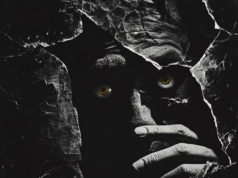For a few months a couple of years ago, Collin Herring’s home court was the Aardvark, a popular rock bar by the campus of Texas Christian University.
 The roots-rock singer-songwriter and the club’s owner eventually had a falling out, which forced Herring to set up shop at Fort Worth’s only other respectable rock bar, the Wreck Room, on the other side of town in the West 7th Street-area. Herring occasionally hung out in the neighborhood and sometimes, from the comfort of a bar stool, plucked out impromptu sets on an acoustic guitar. But he never really worked at developing a West-7th fan base. His first couple of shows brought out his loyal fans, respectably stuffing the moderately sized club, and he also drew some newbies, mainly the Wreck’s base of hipsters and hard-rockers, wanting to see what the hell a TCU-area kid was doing on their sacred turf.
The roots-rock singer-songwriter and the club’s owner eventually had a falling out, which forced Herring to set up shop at Fort Worth’s only other respectable rock bar, the Wreck Room, on the other side of town in the West 7th Street-area. Herring occasionally hung out in the neighborhood and sometimes, from the comfort of a bar stool, plucked out impromptu sets on an acoustic guitar. But he never really worked at developing a West-7th fan base. His first couple of shows brought out his loyal fans, respectably stuffing the moderately sized club, and he also drew some newbies, mainly the Wreck’s base of hipsters and hard-rockers, wanting to see what the hell a TCU-area kid was doing on their sacred turf.
Herring, with his chiseled good looks, scuffed bucks, and partiality for blazers – even in summer – couldn’t have been any more different from the tattooed, pierced, and bearded Wreck regulars, in their vintage t-shirts and Converse sneakers or flip-flops and shorts (even in winter). He must have looked like fresh meat to a pack of dogs. During one of his first shows, a crew of hipsters, standing at the lip of the stage, heckled him steadily, making snide comments between numbers and refusing to acknowledge the rhythms of the singer-songwriter’s often punchy, twang-tinged songs; not so the rest of the fans, who swayed or nodded along to just about every beat, melody, and lyric. Herring might not have known the hecklers by name, but he knew their type, which was enough for him to give as good as he was getting. At one point between songs, he said that copies of his debut CD, the sparkling Avoiding the Circus, were available for sale at the back of the club. “The album, though,” he said, looking out at the entire audience but aiming squarely at the hecklers, “has more than just four songs on it.” “Ohhh!!!” one of the agitators blurted and began to chuckle, as if he’d just been knocked on the jaw by a surprise left hook – unlike pretty much every local hard- and indie-rock band, Herring has never released an EP. Touché.
Herring doesn’t do things small. A few years ago for about a month he seemed hell-bent on complete annihilation – of something, someone, or, perhaps most drastically, himself. Not a week went by without some new gossip of one of his allegedly booze-fueled exploits. “Dude,” someone would say, “you shoulda seen Collin last night” and proceed to go into the painful details of yet another one of Herring’s bar fights or public blackouts. The stories were sort of humorous – at first. After a short while, though, they became just downright sad. By the time he bought a motorcycle and began prowling the streets on it, sometimes without a helmet, there was no doubt as to the severity of his obvious death wish.
Herring’s destructive behavior went on, even after he had removed himself, or was forcibly removed by family and friends, from the scene. He married a woman he barely knew – they divorced a few months later – and he began sabotaging an album he had begun recording months earlier, scrapping tracks and firing band members seemingly at whim. “Nothing he does surprises me anymore,” one of his friends said at the time. “If he told me he was going to join a monastery, I’d have to believe him.” Herring is now sober. Surprise. He has been for months, and his new album, his third and the one that he, intentionally or not, kept derailing, is a somewhat bittersweet good-bye letter to yesterday. The title, Past Life Crashing, can be read a couple of ways: either that Herring is past that period in his life when all he did was crash, or that the album’s overall melancholy tone owes to the crashes he experienced during his recent past-life.
Most of the 11 songs are as artfully ambiguous. As on his previous two albums, including his second, The Other Side of Kindness, Herring once again plays sympathetic characters – the desperado, the fallen angel, the unrequited lover – and in his trademarked, highly unsympathetic way. None of his rejects is John Cusack, standing on his ex-girlfriend’s lawn in the middle of the night, holding a boombox over his head, blasting some weepy rock song. No, Herring’s doppelgangers are desperate and sometimes unapologetically delusional. They’re the kinds of guys who would rather anesthetize themselves at the local watering hole for days on end or pretend that everything’s fine, just hunky-dory, than admit to their inevitable fates, sealed by bad choices and even worse instincts. “Let’s go out like a meteor shower,” Herring sings on the twinkling ballad “Sidekick,” his normally cranky, smoky voice hollow and smooth and tempered by wispy backing vocals from Kathleen Edwards, who laces her ethereal instrument through another track, “Punches,” and plays violin on “Beside.” “Let’s go out and lose it together.”
On the one hand, you feel sorry for the guy. He’s just looking for some sort of meaningful connection – we all are – even if it’s only for one scorching, flashing moment. On the other, he’s being selfish, and considering that all he wants is for someone – or something – to push him back or pull him near, his mania has the Stygian gleam of death and destruction about it. He himself will warn you not to buy into his spiel. “I’ve seen the movie, and I don’t wanna be him,” Herring sings on “Yard Cars,” a blistering jaunt that in a righteous world would be all over alt-country radio right now. “With the red-eyed mornings, dragging everybody under / Dragging you under.”
None of Herring’s archetypes look alike. The desperado in “Yard Cars” is not the same as in “Pictures” or “Sidekick,” and the unrequited lover in “Beside” is not the same unrequited lover in “Dishes” or “I Guess.” They’re all different mainly because the music they all find themselves in also is. In “I Guess,” a haunting, downtempo serenade, the scorned lover is a dreamer – or the walking dead – reaching out either from his loneliness or his future final resting place. “Does every direction have to bring regret? / When I hear from you it beats my heart to death / … Let’s make a home movie and not have kids / Let’s be the stars / And listen to the sounds our new house makes / As it creaks and settles.” In “Yard Cars,” the desperado with “stitches and a Blue-Ribbon buzz” is canceling his debts, one thrill at a time: “I went to church in my whiskey clothes / Put my faith in the tray where the ashes go / Look up to heaven, nothing comes for free / Them gates won’t open wide enough for me.” The music – basically, two meaty hooks smashed together to make one big, juicy, bombastic four-minute track – is a milieu that is as specific to him as the ground beneath our feet is to us.
The verse revolves around a simple, powerful driving beat and a jangly, choppy, muted guitar riff, creating the sensation of barreling down a highway into the night or down a bottle of whiskey to the bottom. The chorus does the opposite – it freefalls over a precipice. The riff disappears, leaving just the raucous rhythm, ringing guitar chords, a rattling tambourine, and the tormented moan of a flickering, distorted pedal-steel guitar line that burns hot for a few beats and then sinks low, like a downshift. As the wheels spin freely off the song, Herring punctuates the dead air at the end of each bar with a Springsteenian, away-from-the-mic shout: “Hey!” Like high, lonesome windsong, melodious oooh’s and whoo’s float across the background. (Another nod to The Boss? Like the high whoo-hoo’s and organ solo in the brightly solemn “Pictures”?)
The desperado on “Cellophane” takes a different approach. “I’m giving up the run,” Herring sings, his overdubbed backing vocals harmonizing perfectly. “The monument keeps moving / … No better form of abuse than just calling it a day / I’m calling it a day.” The confession is given specificity by the music. The song is a soft waltz that gradually and almost imperceptibly builds into a rolling, epic denouement. There’s a spirited stroke in almost every note – the “spirited stroke” is what separates the average abstract painters from the greats, a sense of command and of touch that can’t help but result in honest, adamantine originality. Nothing is forced. Everything is soulfully felt, starting with the intro, just a simple couple of chords that Herring turns into a multi-faced, multi-hued force merely by accenting some downstrokes and muting some others. He’s joined by his father, Ben Roi Herring, on keys and pedal steel, and his lead guitarist, Audley Freed (Black Crowes, Dixie Chicks, Gov’t Mule), whose playing on electric is a lot looser but not less heartfelt, and the rhythm section – drummer and co-producer Ken Coomer (Uncle Tupelo, Wilco) and bassist Andrew DuPlantis (Meat Puppets, Bob Mould, Alejandro Escovedo) – forge a militaristic tribal beat. The singer isn’t sad, the music seems to say, and he’s not happy, either. Just somewhere in between, but a lot closer to peaceful acceptance than to angry resistance.
The character “slipping through pictures, slipping through jobs” on “Pictures” is, like the music, begrudgingly at peace with his freedom. His tired voice laden with echo and crisp, the singer lays out his situation, “No rain / No following chain / No anger is trailing me / Just some corporation’s / Post-consumer floorboard cups / Scattered like questions of / Where I’m supposed to be.” The archetype here, the workingman whose only sin is having been born in a factory – or on a farm or in a coal mine – is familiar to anyone who’s ever heard any one of Springsteen’s dozens of gorgeous portraits of commoners. And as with some of The Boss’ more studied pieces, the character in “Pictures” isn’t looking for forgiveness. Or even for “a few more dollars” to “fix the clutch and just keep going.” All he wants is to “be a free man, never give a damn.” Slipping through pictures, slipping through jobs, slipping through life.
There’s no overstating the inspired ways in which Herring’s music and lyrics work together. His brand of lyrical expressionism, in which how something is said is sometimes as important as what is said, wouldn’t work – or at least not as well – without unassailable, accessible, and perfectly performed music. Past Life Crashing’s clearly defined sonic shapes and textures not only frame the singer-songwriter’s less accessible strophes but also underline the nuggets or insightful lines and phrases. On paper, “Infatuations are phasing out” might not say much. But in the context of the song, “Sandstorm,” a splashy, rambling rocker, the sentiment becomes clear: I’m done screwing around – emotionally, musically, sexually, whatever. Done. Likewise, his Allison Krauss-y plea for forgiveness, “Punches,” is as unadorned as possible, to match the clear-eyed sincerity of the singer’s words: “‘Cause I’ve been turning in early / And keepin’ my head clear / I used to be a warrior / Throwing punches at the night air.”
As with the best roots-rockers, Herring’s murky verbal color combinations have rich emotional correlatives you may have never experienced but can easily relate to. You don’t need to be a tortured artist to see yourself in “Sidekick.” “I got a letter and don’t wanna read it,” Herring sings. “Sometimes it’s better to be half-finished forever / I got a problem and don’t wanna leave it.” Neither do you have to be in the thick of a messy breakup to recognize the pitiable charm of the line from “Sandstorm” that goes, “The books and the habits I’ve hauled away / There’s more than ever you can come back to.”
Herring’s characters are constantly wrestling with good and evil, war and peace, love and hate, much like Herring himself ostensibly. The last track, “Dishes,” is a sparse electronic dirge, with spacey sound effects and in which Herring’s voice has been synthesized to sound like a creepy child’s, driving home the lines, “Any day I’m gonna figure it out / Any day I’m gonna figure it out / Any day I’m gonna figure it out.”
Collin Herring
Next Fri, Mar 21, at Lola’s, 2736 W. 6th St., FW, 817-877-0666, and in Austin this weekend as part of SXSW, at the Thirsty Nickel tomorrow (Thu), Maria’s Taco Express Fri, and Nuno’s Sat.












[…] Tearing up Roots – As on his previous two albums, including his second, The Other Side of Kindness, Herring once again plays sympathetic characters – the desperado … leaving just the raucous rhythm, ringing guitar chords, a rattling tambourine, and the tormented moan … […]